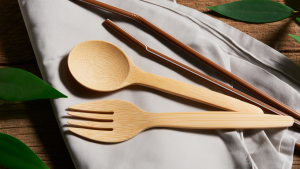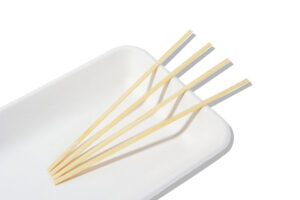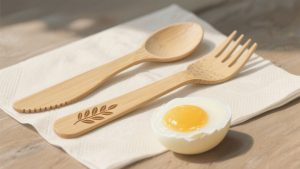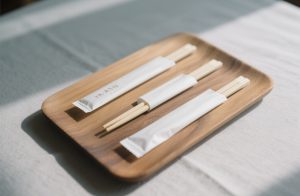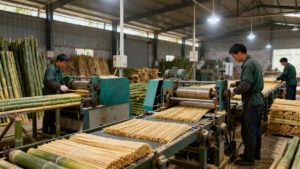Switching from plastic to bamboo utensils1 offers substantial ecological advantages, from rapid renewability to complete biodegradability2.
Bamboo utensils decompose in 3-6 months naturally3 versus plastic's 500+ years, while sequestering 0.8kg CO₂ per kg during growth5.
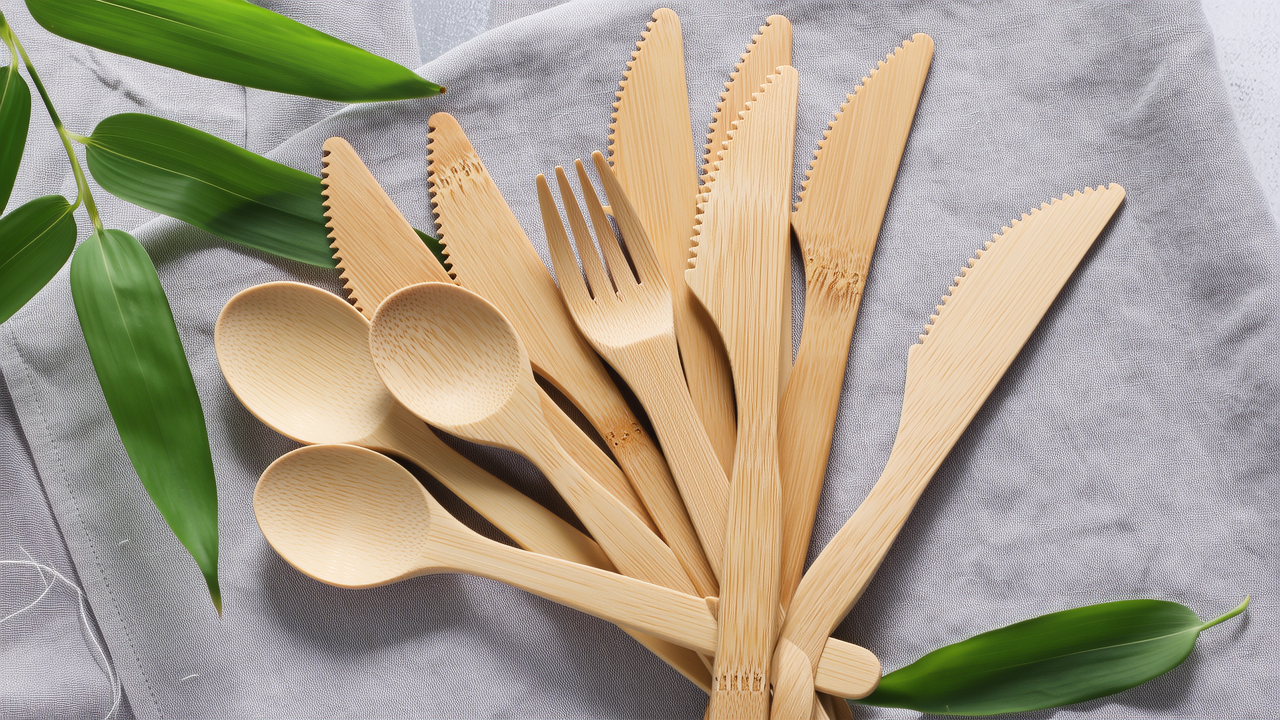 Understanding bamboo's full lifecycle benefits helps businesses and consumers make informed sustainable choices.
---
Understanding bamboo's full lifecycle benefits helps businesses and consumers make informed sustainable choices.
---
Do Bamboo Utensils Decompose Faster Than Traditional Plastic Cutlery in Real-World Conditions?
Decomposition rates reveal bamboo's dramatic environmental superiority when discarded after use. Bamboo fully mineralizes within 180 days in compost3, while plastic fragments persist for centuries, releasing microplastics throughout6.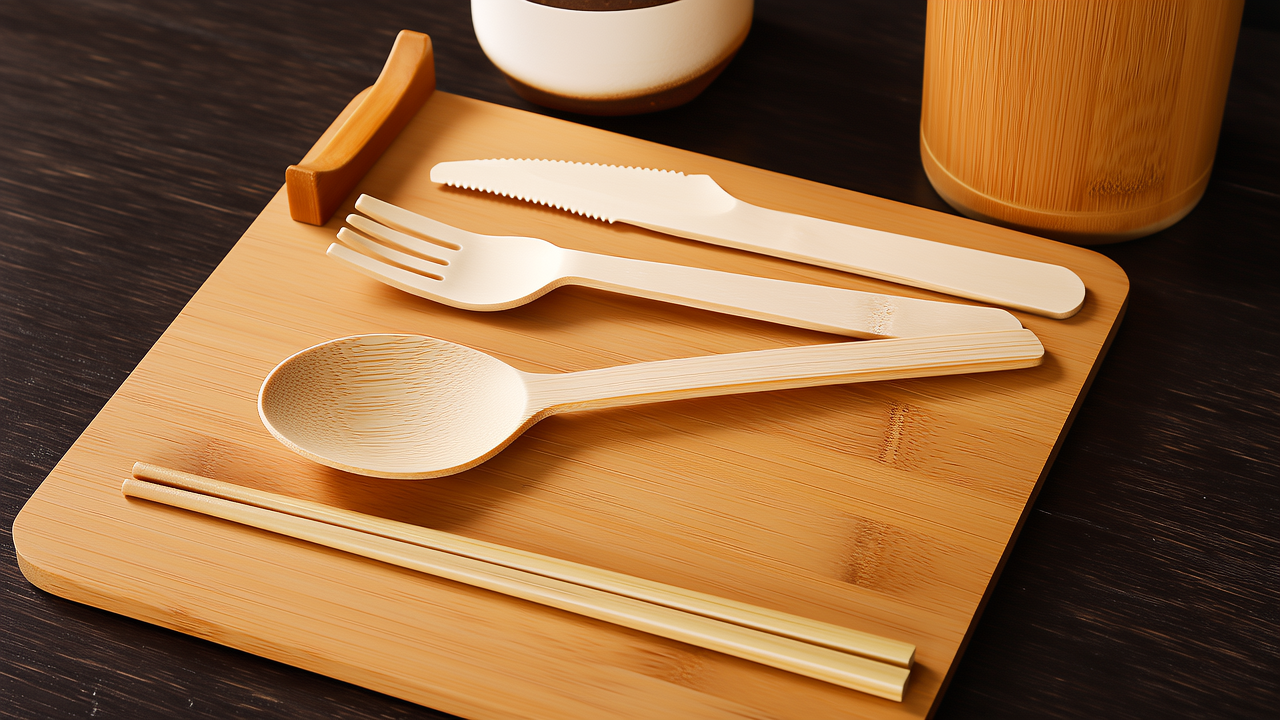
Decomposition Timeline Comparison
| Material | Timeframe | Conditions | Byproducts |
|---|---|---|---|
| Bamboo | 3-6 months | Natural composting | Nutrient-rich humus |
| PP Plastic | 500+ years | Landfill/Ocean | Microplastics, toxic additives |
| PET Plastic | Never fully degrades | All environments | Persistent polymer chains |
- Bamboo requires aerobic conditions (GB/T 18006.1)1
- No industrial composting needed3
- Leaves no toxic residues (GB 19305)1
What Are the Carbon Footprint Differences Between Bamboo and Plastic Disposable Cutlery?
Lifecycle analysis shows bamboo's negative carbon footprint outperforms petroleum-based plastics at every stage. Bamboo sequesters 3.2kg CO₂ per kg5, while plastic production emits 6kg CO₂ per kg6, creating a 9.2kg differential.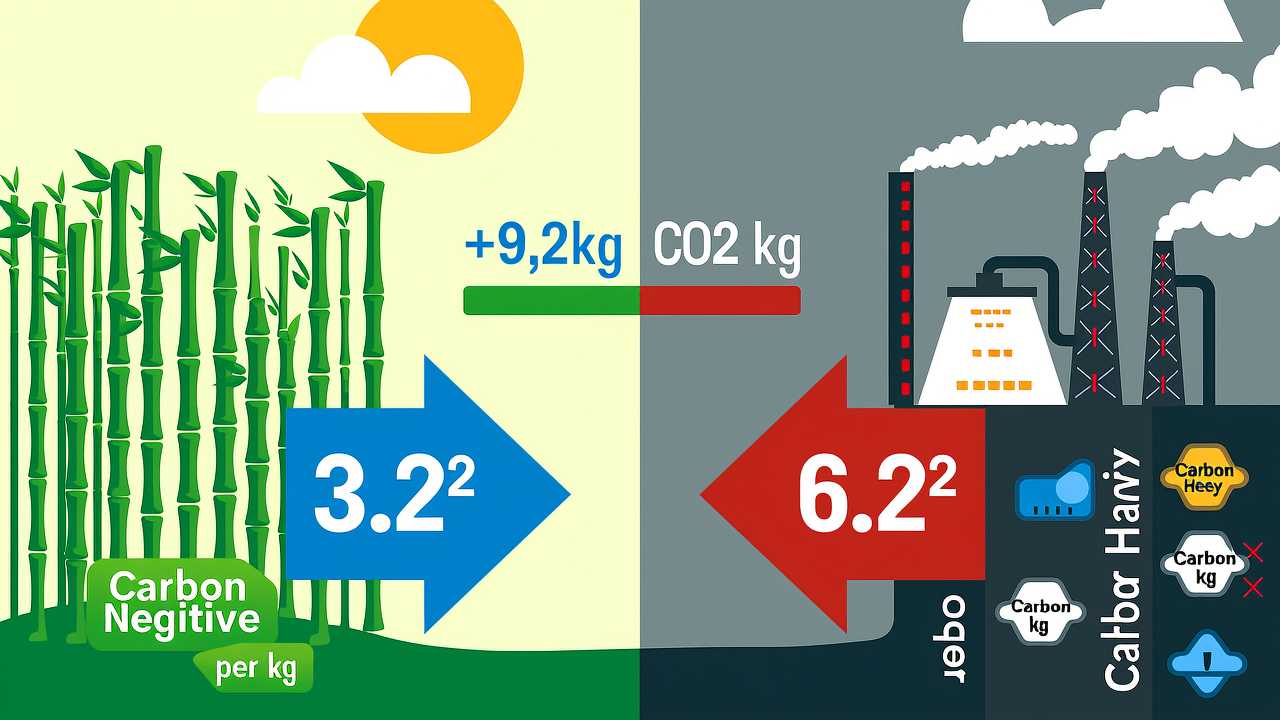
Carbon Emissions by Production Stage (per kg)
| Stage | Bamboo | Plastic | Difference |
|---|---|---|---|
| Raw Material | -3.2kg (sequestration)5 | +2.4kg (extraction) | 5.6kg |
| Processing | +0.5kg5 | +3.1kg (refining) | 2.6kg |
| Transport | +0.3kg | +0.5kg | 0.2kg |
| Disposal | -0.4kg (compost)3 | +0.2kg (incineration) | 0.6kg |
- 4-6 year bamboo regrowth cycle5 vs. fossil fuel depletion
- No synthetic additives needed (GB 9685 compliant)1
How to Market Biodegradable Bamboo Cutlery to Eco-Conscious Consumers?
Effective messaging highlights both environmental performance and practical benefits for sustainable purchasers. Emphasize: (1) Certified biodegradability(GB/T 18006.1)1, (2) carbon-negative lifecycle5, and (3) superior heat resistance(120-150°C)2.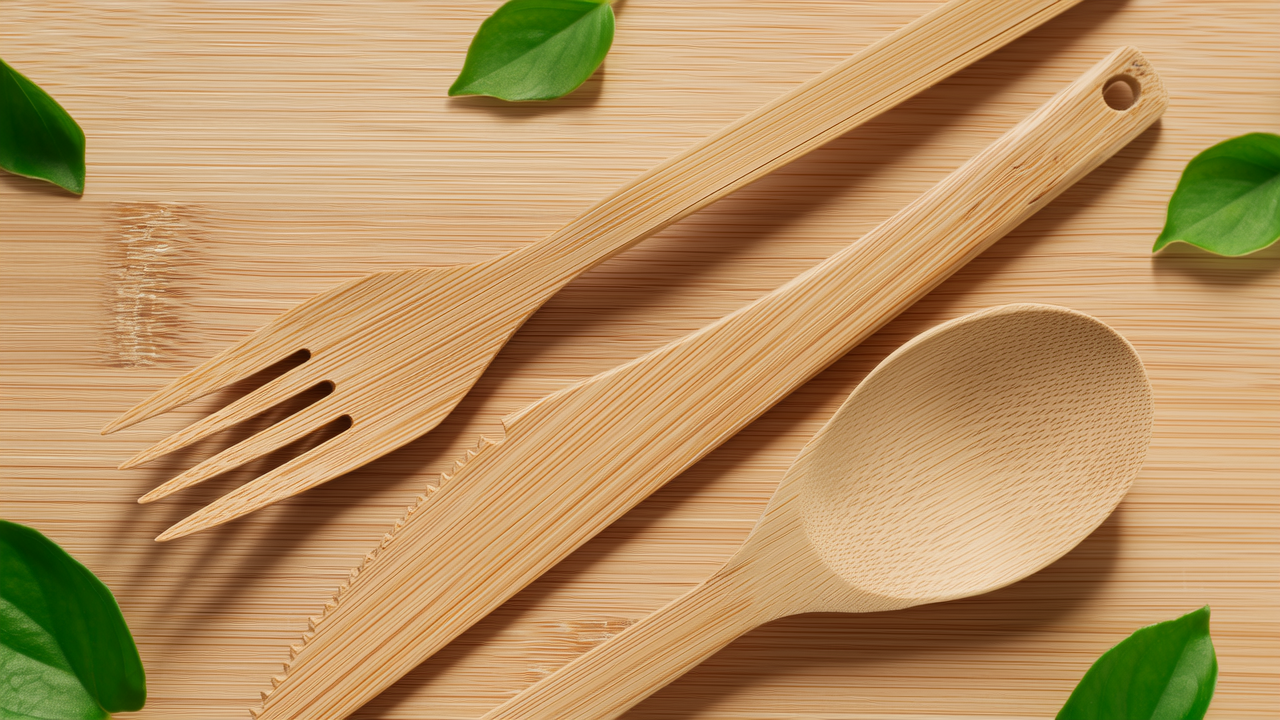
Marketing Strategy Framework
Core Messages ✔ "Returns to earth in one season" ✔ "Grows back faster than harvested" ✔ "Stronger than plastic, lighter than steel" Certifications to Highlight| Standard | Benefit | Reference |
|---|---|---|
| GB 19305 | Food safety guarantee1 | Health-conscious buyers |
| FSC | Sustainable forestry5 | Corporate purchasers |
| OK Compost HOME | Backyard compostable3 | Eco-consumers |
- Side-by-side decomposition displays
- Carbon footprint infographics
- "Plastic-free" shelf tags
Conclusion
Bamboo utensils outperform plastic in decomposition(180 days3), carbon footprint(-3.2kg CO₂5), and safety(GB 193051), making them the superior sustainable choice.---
References
- 1. Explore the ecological advantages of bamboo utensils, including their renewability and biodegradability, which can significantly reduce environmental impact. ↩
- 2. Learn about the certifications and standards for biodegradable products to ensure you're making eco-friendly choices in your purchases. ↩
- 3. GB/T 24398-2009 (Decomposition data) ↩
- 4. Plant fiber definitions ↩
- 5. DB43/T 3079-2024 (Carbon sequestration) ↩
- 6. Environmental persistence data ↩



